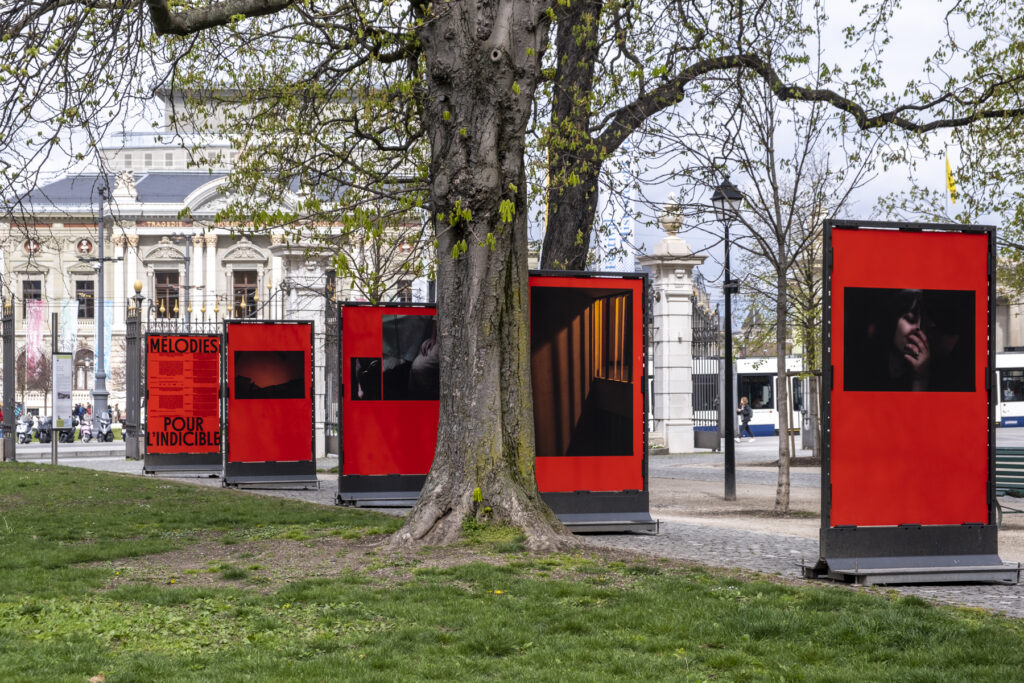
2022 | Parc des Bastions, Geneva
Curated with Abdo Shanan
Photography and the colonisation of Algeria have a parallel history. Photography was invented in 1839, nine years after the beginning of the progressive occupation of the Algerian territory by France. The first photographs taken in Algeria were produced by Europeans who were often fascinated by the Orient. Their images are full of oases and idyllic landscapes, ancient ruins, and sometimes dehumanising stereotyped representations of anonymous and exoticised local inhabitants. These photographs reinforced the fantasies of the Orient, represented as a virgin territory full of possibilities to be seized, and, therefore, they supported the colonial project. Today, these images continue to circulate.
The Algerian War of Independence, which began in 1954 and ended with the Evian Accords in 1962, is an important moment in the visual history of Algeria. This decolonisation war was also a war of images: both sides and their newspapers mobilised photographers and circulated their snapshots of the conflict. However, French production largely dominated, due to its superior resources and the censorship it exercised in France and in Algeria. They remain today the most widely distributed images of the war. It is nevertheless in this context that Algerian photography and cinema began to emerge and gradually developed in the decades that followed.
The exhibition Rhymes from Untold Realms highlights four artists from the Algerian photographic scene, or from its diaspora, which is characterised today by its dynamism and plurality. These authors use images to express their history and heritage, as well as their identity, their experience and their singular vision of the world.
Just like Ozu’s pillow shots, Celia Bougdal’s images seem to serve no obvious narrative reason, at first glance. Her work appears to be a collection of discarded moments from life, moments that pass us by. Except that it is in these instants that she finds herself the most, and through these disregarded moments she can finally express the intimate relationship she has with the world, often lost in its details.
Safia Delta’s work questions the temporal envelope sheltering our lives and the possibilities of construction and definition of the self in front of the irreversible. Facing silences and memory gaps, it gives substance to the wanderings and existential trajectories of uprooted people from the North African diaspora, and questions the link binding them to the land. The revisiting of family archives and the construction of a personal archive retrace and consecrate the stories with love, delicacy and dignity, to give them eternity as a legacy.
Yanis Kafiz considers himself an actor of the environment that he photographs. Trees immersed in a flashy orange light as if the whole sky is on fire, or portraits of his friends and loved ones: everything is photographed without any judgment and with total transparency, as he describes his work. Through this transparency, we are allowed into his diary, and can feel his affinity with the people around him.
Ahmed Merzagui’s work is an ode to Tlemcen, his native city, and by extension to Algeria, his motherland, which he considers to be an entity of its own, balancing between nation, concept and delirium, where in every nook and cranny of his modern and contemporary version hides a singularity, at times fantabulous, at times baffling, and an infinity of stories…
Exhibition design by Balmer Hählen & prints by Atelier Richard
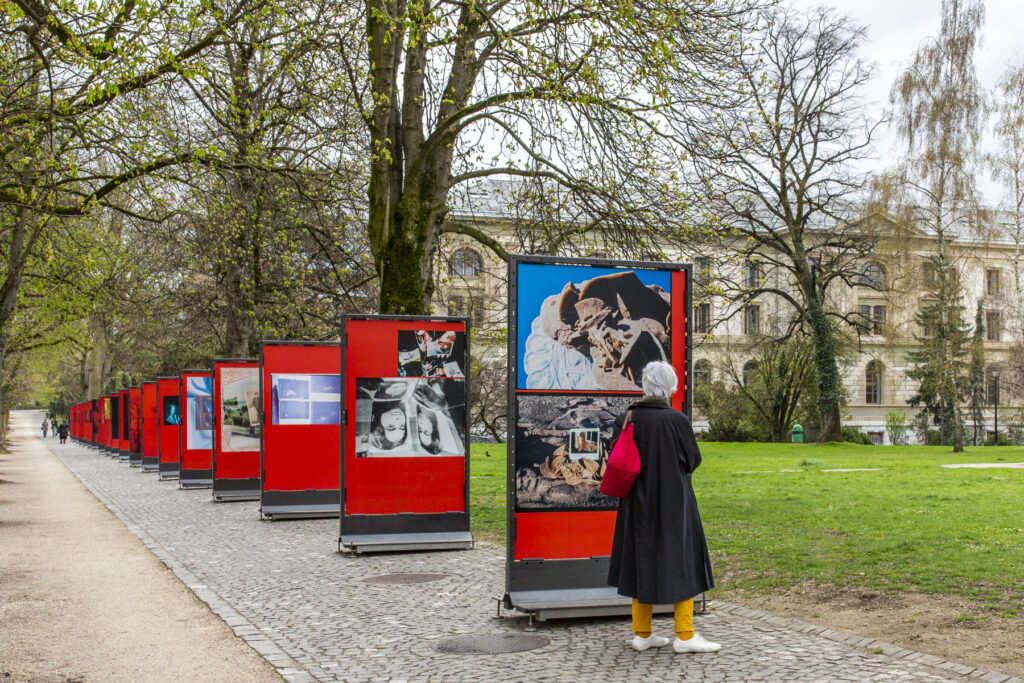
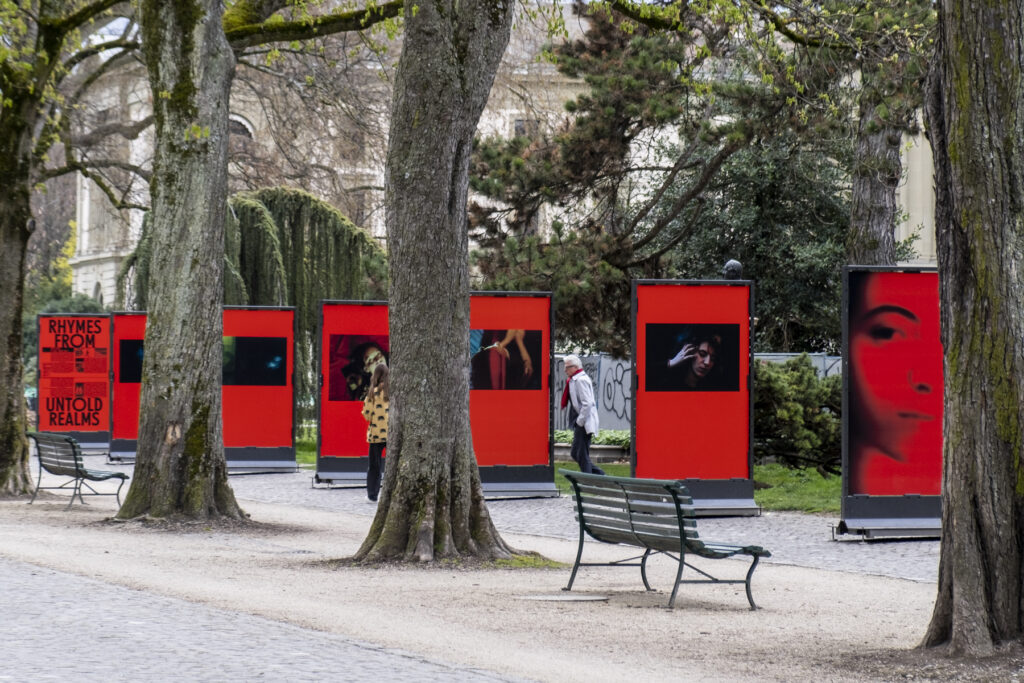
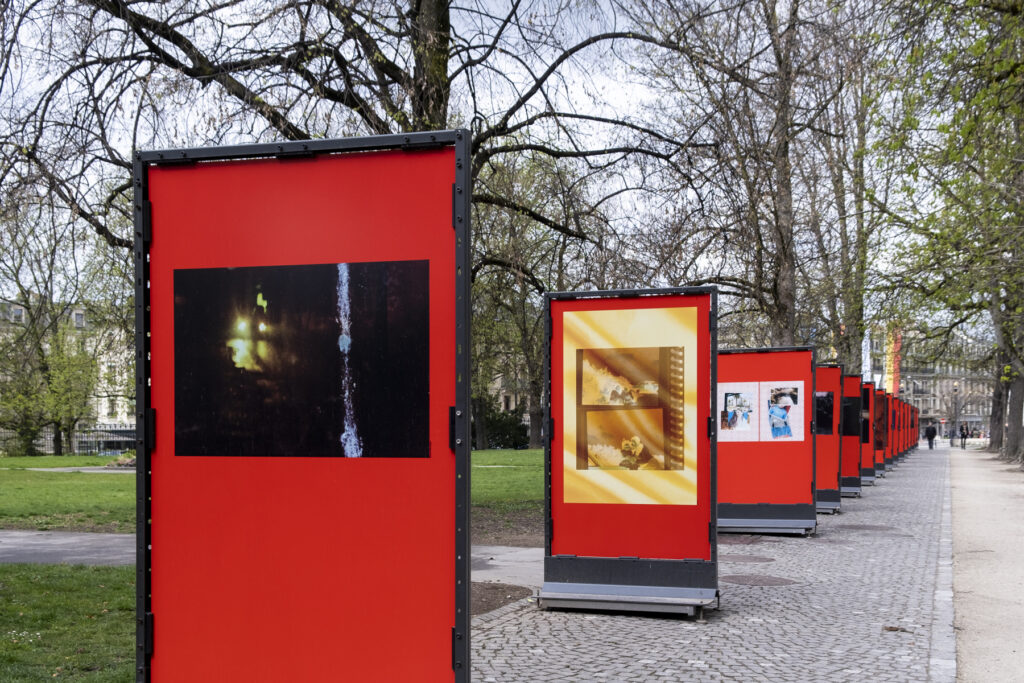
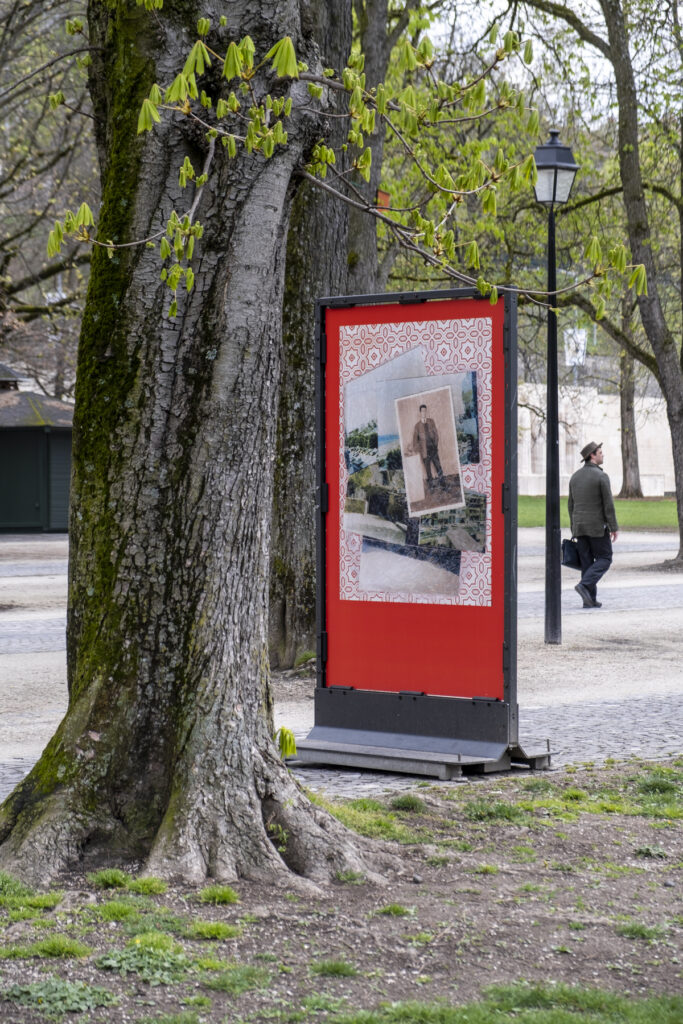
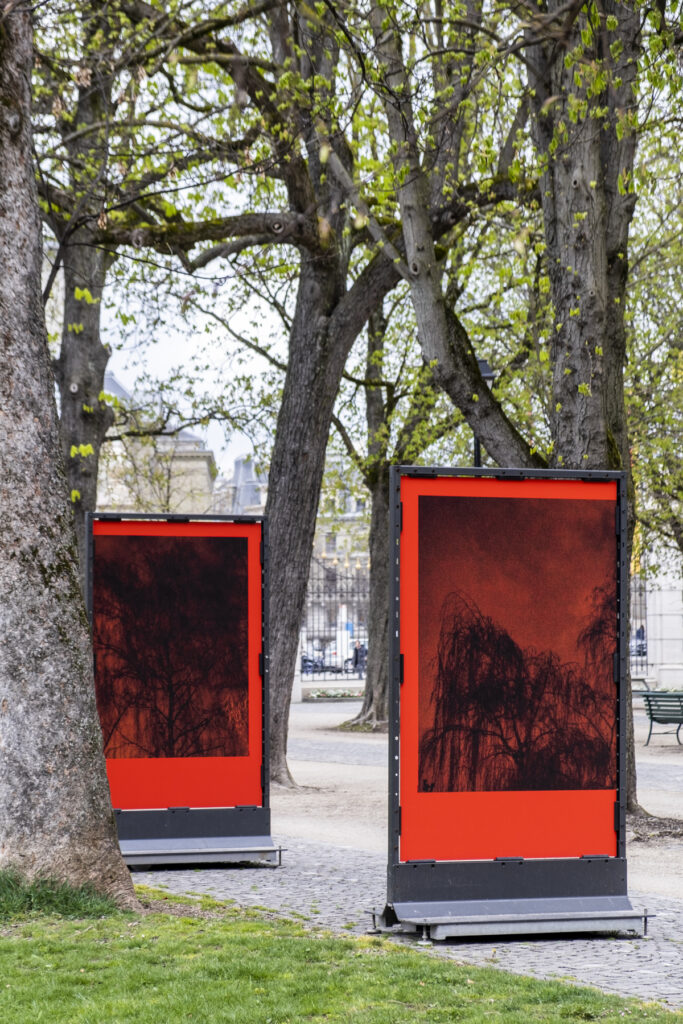
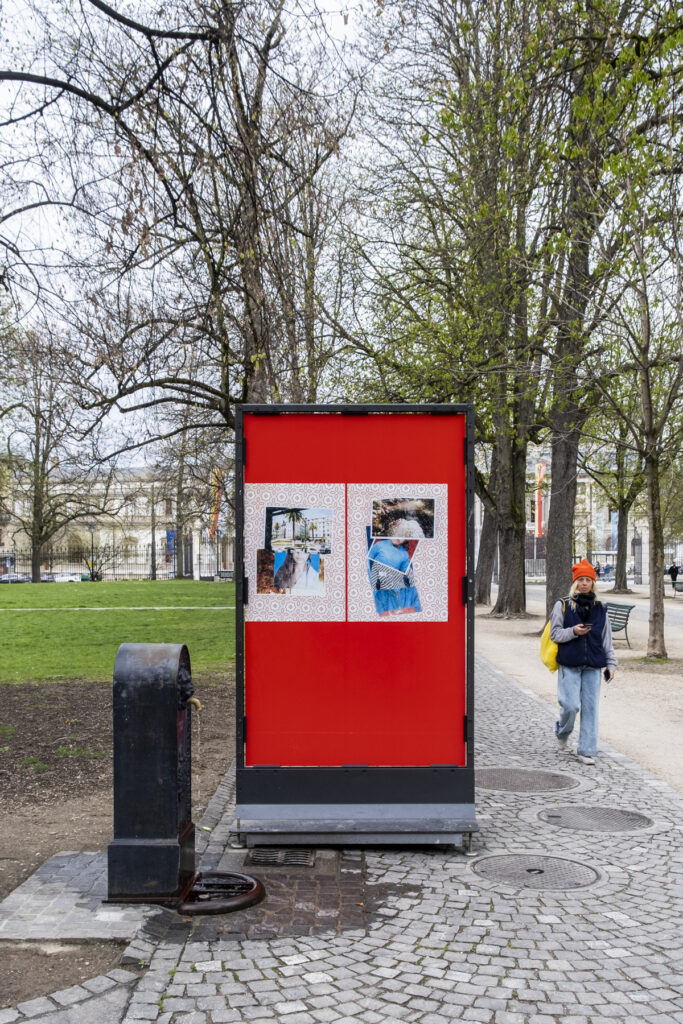
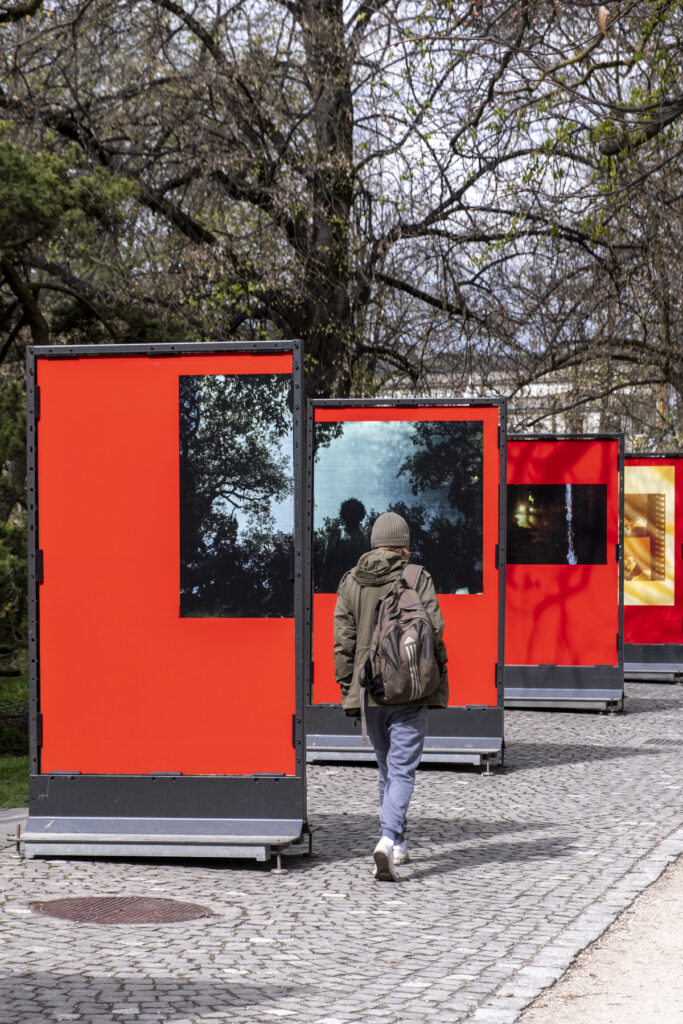
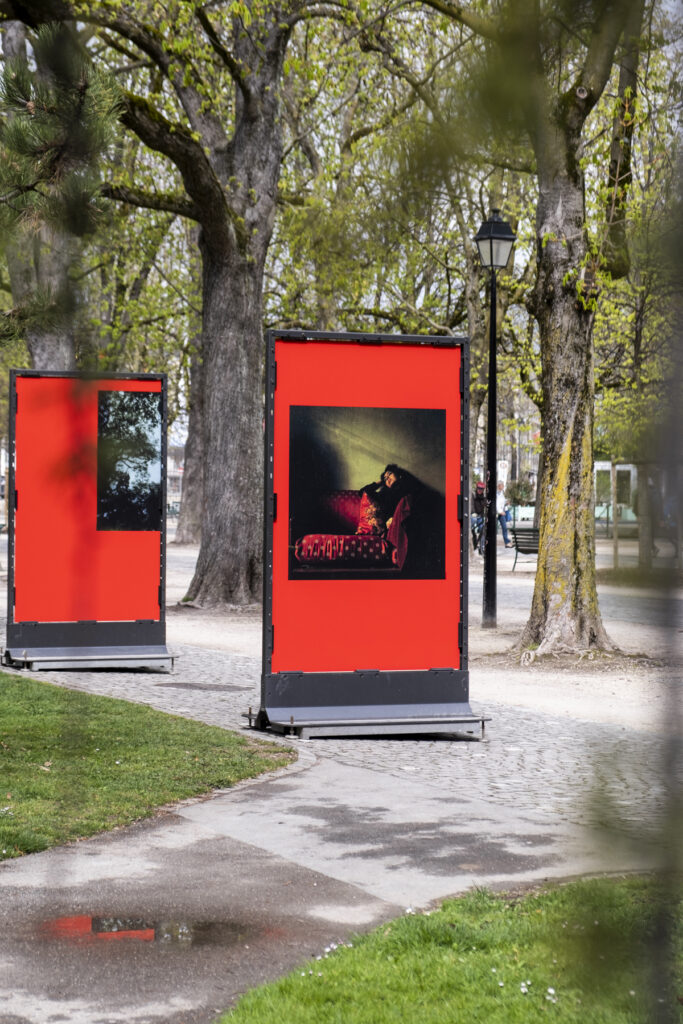
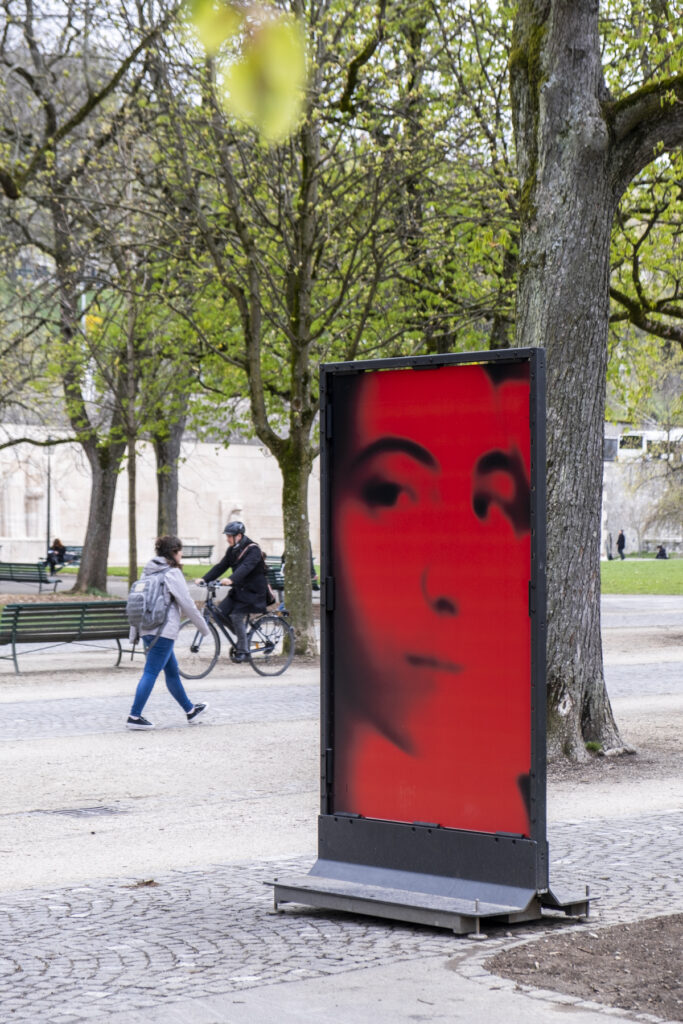
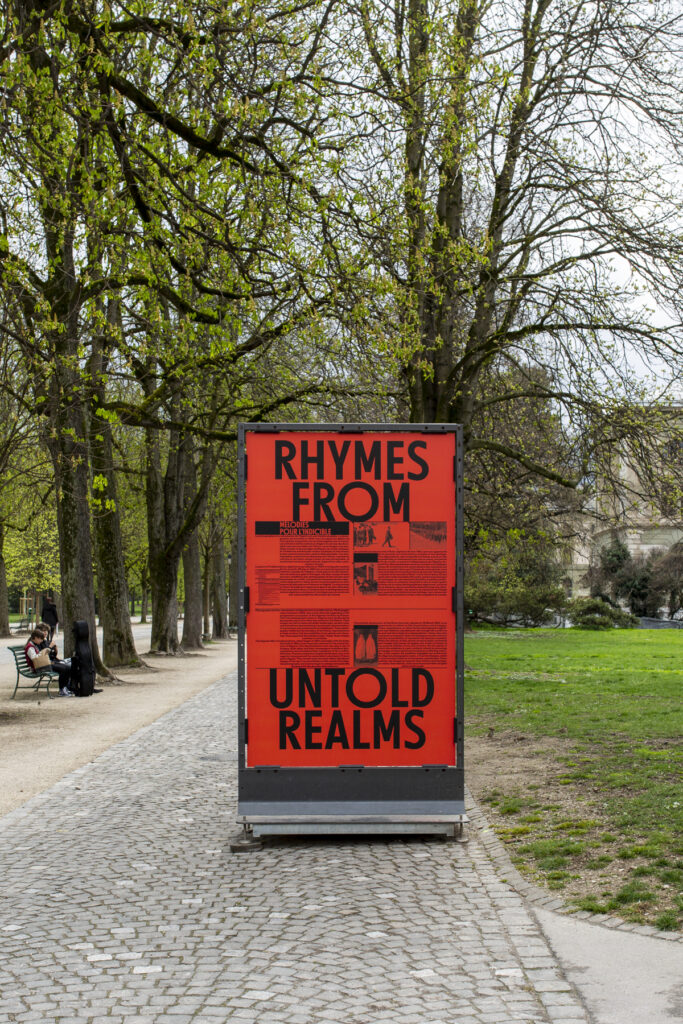
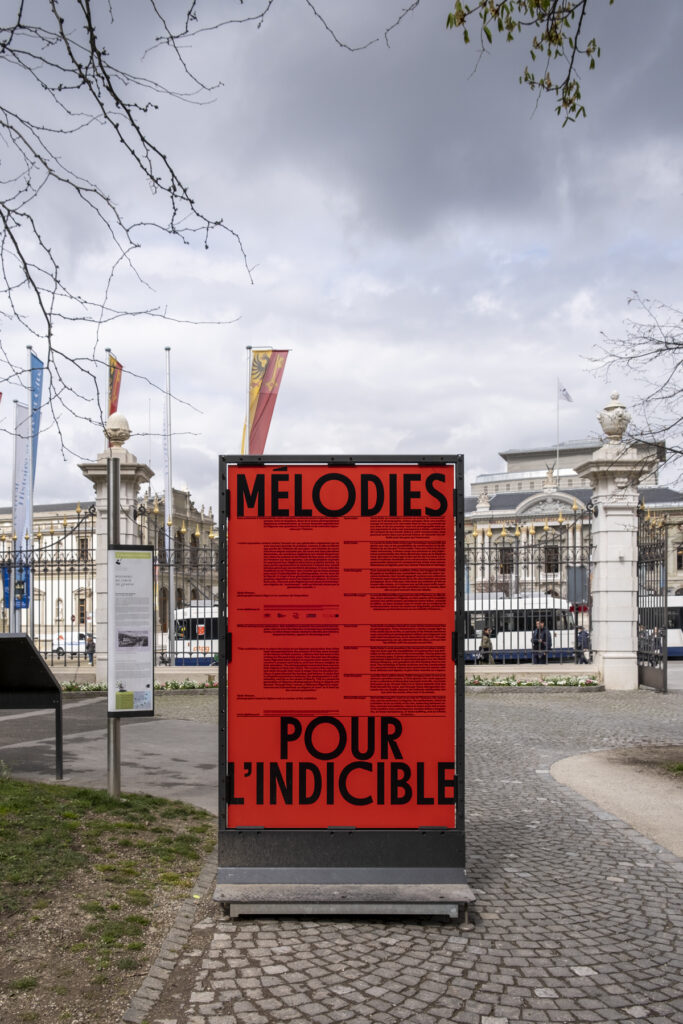
Exhibition views by Aline Bovard Rudaz